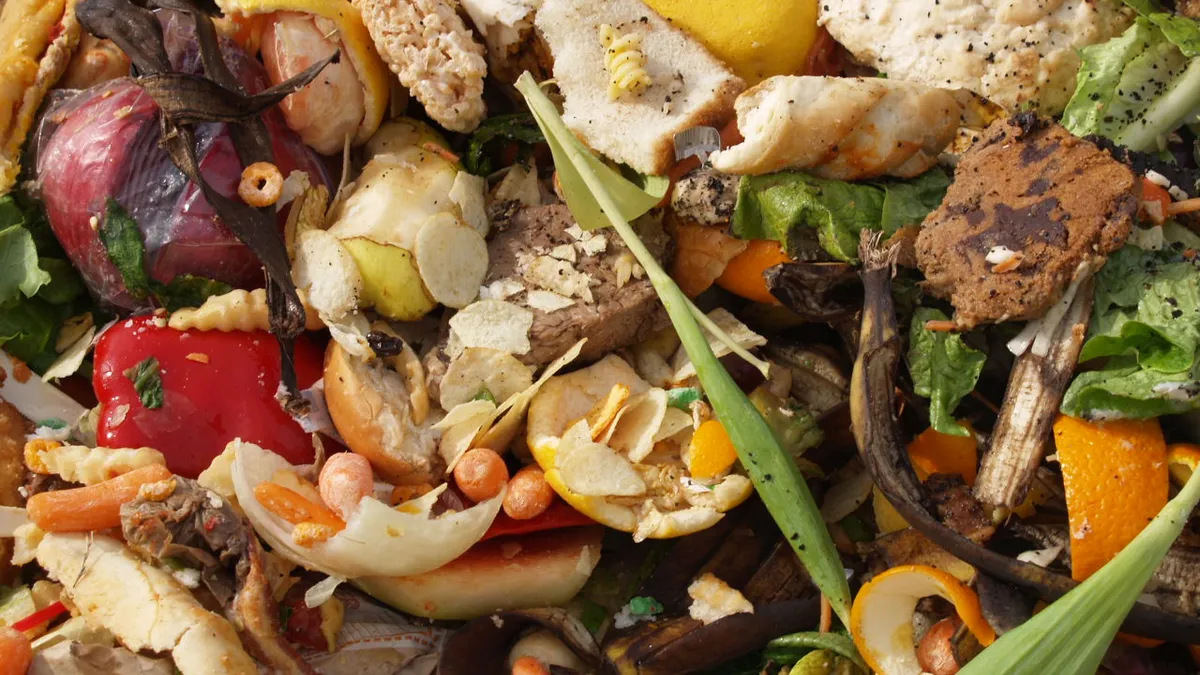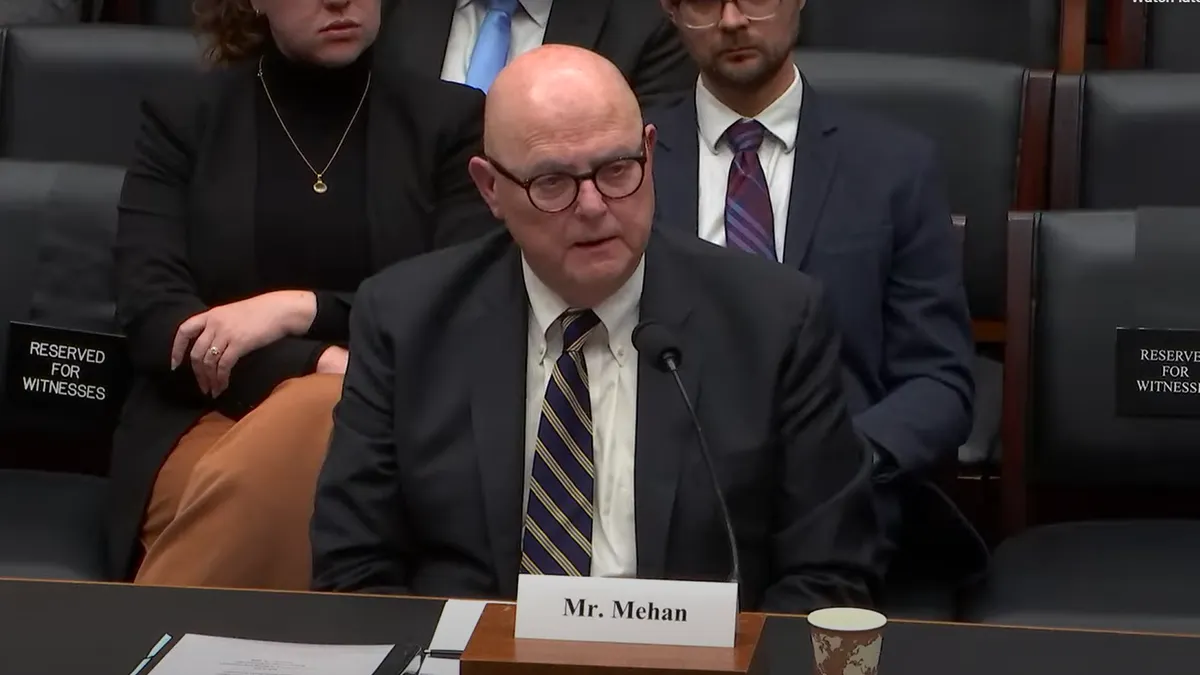New York City is on track to have one of the nation's more widespread commercial organics diversion mandates in the latest sign of ambitious local policy to boost this growing sector.
Earlier this fall, the city's Department of Sanitation (DSNY) proposed a new rule that would expand its existing requirements for the third time to cover approximately 8,000 new businesses and 100,000 tons of annual food waste. In a release marking the announcement, Commissioner Kathryn Garcia described this as the "final phase" of a 2013 law targeting commercial organics in the waste stream.
While concerns have been raised about operational logistics, rising policy interest throughout the country has made expansion of this service look increasingly inevitable. Even among local skeptics, it's no longer a question of whether organics recycling is a viable concept but how quickly it should expand.
New York expansion
New York's current requirements, set forth in 2015 and expanded in 2017, already apply to a wide swath of businesses. Covered entities include large food manufacturers and wholesalers, arenas and stadiums with more than 15,000 seats, individual food service establishments of a certain size, chain food service establishments with 100 or more locations in the city and retail food stores larger than 25,000 square feet.
This third round would cover food service establishments (such as restaurants) larger than 7,000 square feet, food chains with two or more locations, retail (including grocery) stores larger than 10,000 square feet, food establishments in hotels with 100 or more rooms, catering establishments hosting more than 100 people, select food prep spaces and temporary public events.
Some of New York's local haulers have been offering organics collection service to businesses for years – more since the original DSNY requirements took effect – but this latest proposal has received some resistance from industry associations.
During a November administrative hearing, both the National Waste & Recycling Association (NWRA) and New Yorkers for Responsible Waste Management raised concerns about servicing these new customers under the city's existing rate cap, managing contamination challenges with post-consumer organics and the availability of reliable processing capacity.
As the state of New York also works toward implementing a parallel commercial organics diversion mandate there is hope from all parties that more local processing infrastructure will start to come online.
"We believe that the city should continue working along the lines with the state to provide incentives to work for capacity and for composting sites to take the materials. We need a redundant and diverse market so we can collect and get the materials to the right location," said Steve Changaris, vice president of the NWRA's Northeast region, at the hearing.
According to DSNY's own research (shared with Waste Dive as justification for this latest proposal) the region currently has at least 15 possible destinations. This includes a range of composting and digestion facilities across five states. It does not include the new Trenton Biogas facility in New Jersey, which is ramping up operations after years of anticipation. While the distance required to reach some of these sites is notable, supporters have also pointed out that traditional disposal sites are often much farther away. Questions still remain about available capacity and how processing costs compare.
Multiple food sector trade associations also echoed waste industry comments about cost of service, though from the opposite perspective. Groups including the National Supermarket Association, Food Industry Alliance and NYC Hospitality Alliance all raised questions or proposed changes regarding the size of potentially affected businesses, pricing structures and more.
The New York State Restaurant Association came out in direct opposition for a variety of reasons, including the looming factor of citywide commercial waste zones set to be established.
"(B)etween now and the time that contracts are actually awarded to serve the zones, it's hard to predict what will go on in the market for private waste hauling and commercial organics. If anything, this is an especially uncertain time in the marketplace, and a difficult time to demand a number of new restaurants acquire a somewhat-niche service," said local government affairs coordinator Kathleen Reilly in prepared remarks.
The unknowns of cost structures under zoning, also raised by waste industry associations, won't come into focus until at least next year. As envisioned, this system will require haulers to offer collection service for recyclables or organics service at a lower cost than waste. Those provisions will apply to any business, even those smaller than listed in DSNY's new proposal. While that's not currently seen as viable in certain cases some believe it can be solved by the improved route density this new proposal might enable.
"By expanding the establishments the are required to do this, you're basically defeating the economic argument that the haulers are making," Melissa Iachan, senior staff attorney with New York Lawyers for the Public Interest, told Waste Dive. "This is really kind of the missing link to bridge us from the current commercial waste system to the one that we're going to see under zones."
Additional organizations that testified in favor of the expansion include the Natural Resources Defense Council and New York League of Conservation Voters, local composting companies and others.
National perspective
DSNY's latest proposal is also viewed as part of a steadily growing trend around the U.S. As described by a recent report from Harvard's Food Law and Policy Clinic and the Center for EcoTechnology (CET), such regulations are quickly "emerging as a new and effective policy tool" to deal with the numerous detrimental effects of wasted food.
In addition to the six states that have some variation of organics diversion requirements, five local governments outside those states also have their own policies in place. Aside from Austin, Texas – which now has universal commercial organics recycling requirements – New York City's approach of classifying businesses by size rather than waste generation is relatively unique.
This may create additional tensions around how and when smaller businesses start participating, but is ultimately viewed as less consequential than the trend itself. Generators of any size can start choosing to separate their organics at any time, regardless of regulatory drivers, if they have access to service.
"We definitely have clients that are ahead of the game in this department and there's always a spectrum of folks that are going to do it whether it's in a mandated market or not," Ryan Cooper, organics recycling lead for technology company Rubicon Global, told Waste Dive. "Eventually folks that wouldn't necessarily do it on their own are pushed into it."
Cooper said beyond space constraints for businesses that are separating their organics in New York, access to processing infrastructure is also a notable factor. While some facilities may be geographically close, traffic congestion can make those trips take much longer. This makes pre-processing material for quality and density even more important.
The need for tailored separation and collection solutions, both in New York and elsewhere, also came up repeatedly among industry observers. What works for a stadium may not work for a grocery store, and what works for that store may not work for a restaurant. Along those lines, CET (which conducts research and provides technical assistance for businesses) also noted the most successful markets don't rely on policy alone.
"These policies are important and they help drive activity, but they're not always enough to actually get all the change that we know is possible done," Director of Client Services Lorenzo Macaluso told Waste Dive, pointing to the need for ongoing enforcement and neutral advice. "That's when we're seeing marketplace transformation as we think of it."



















